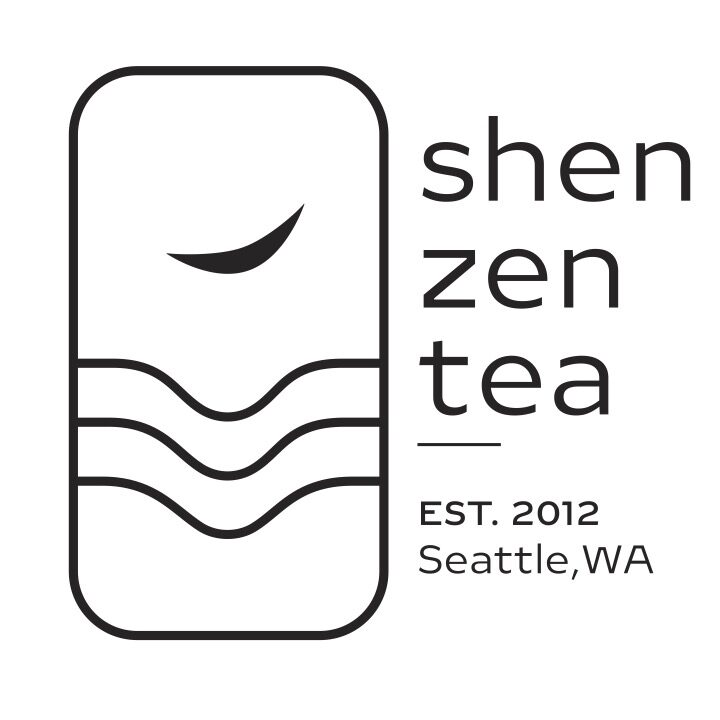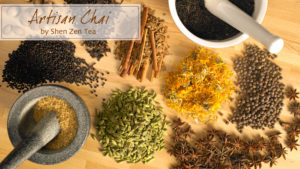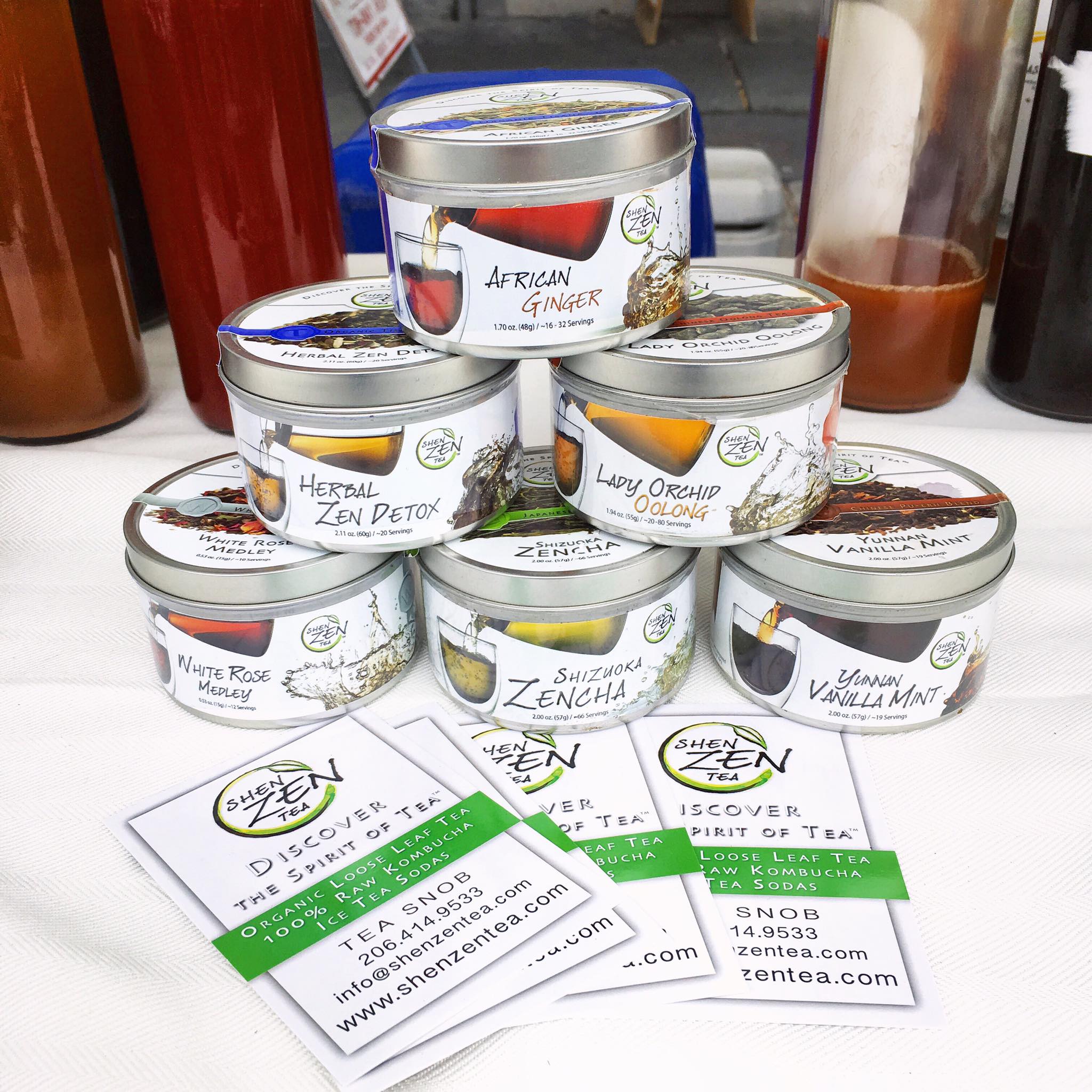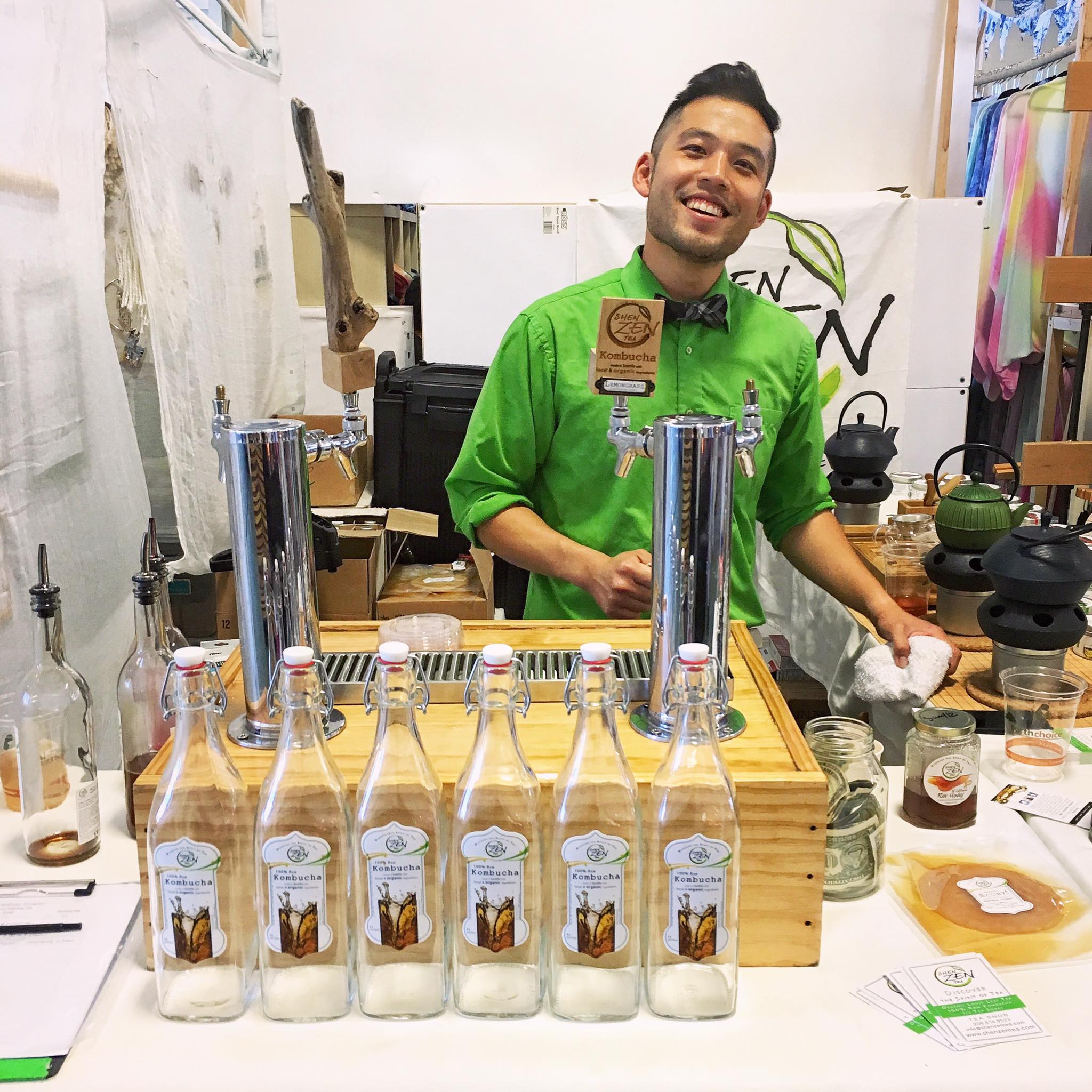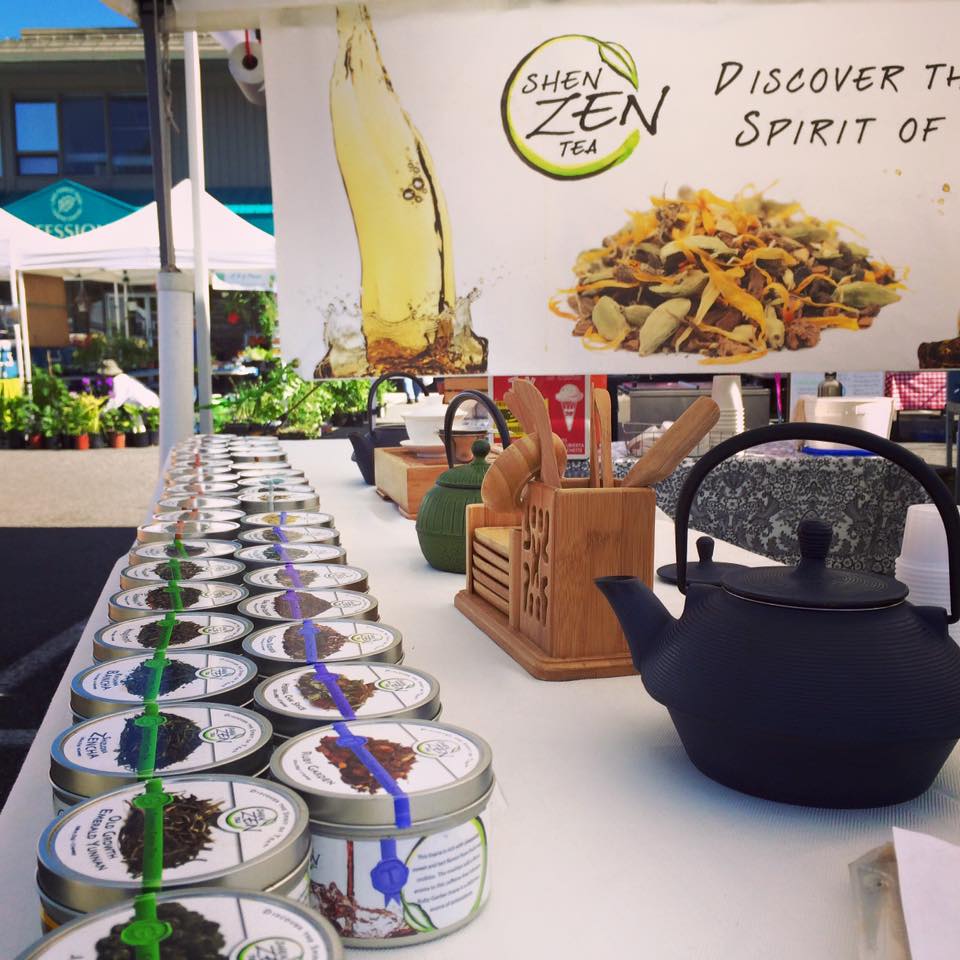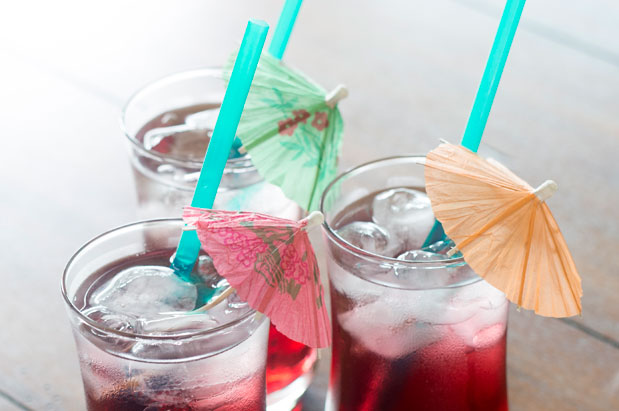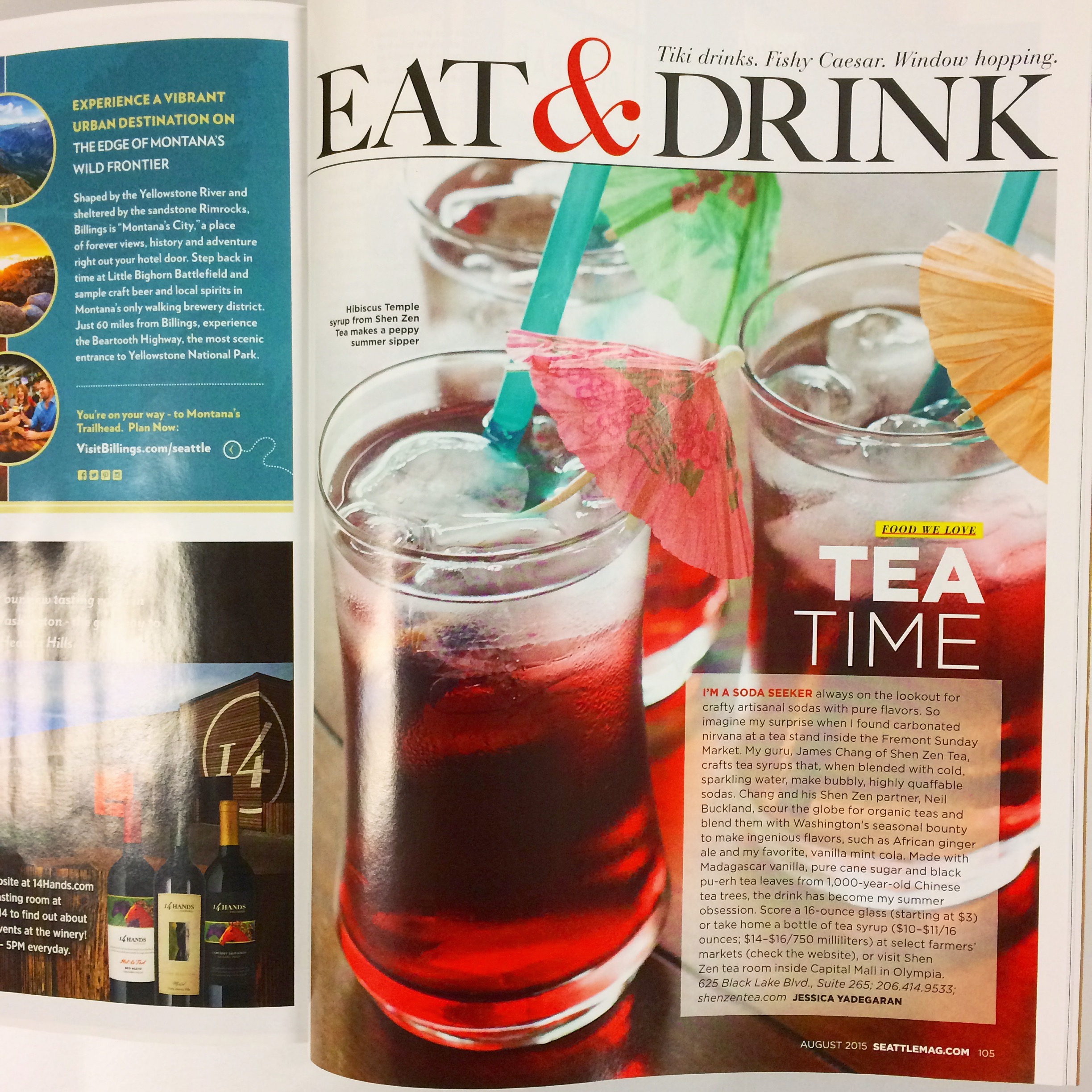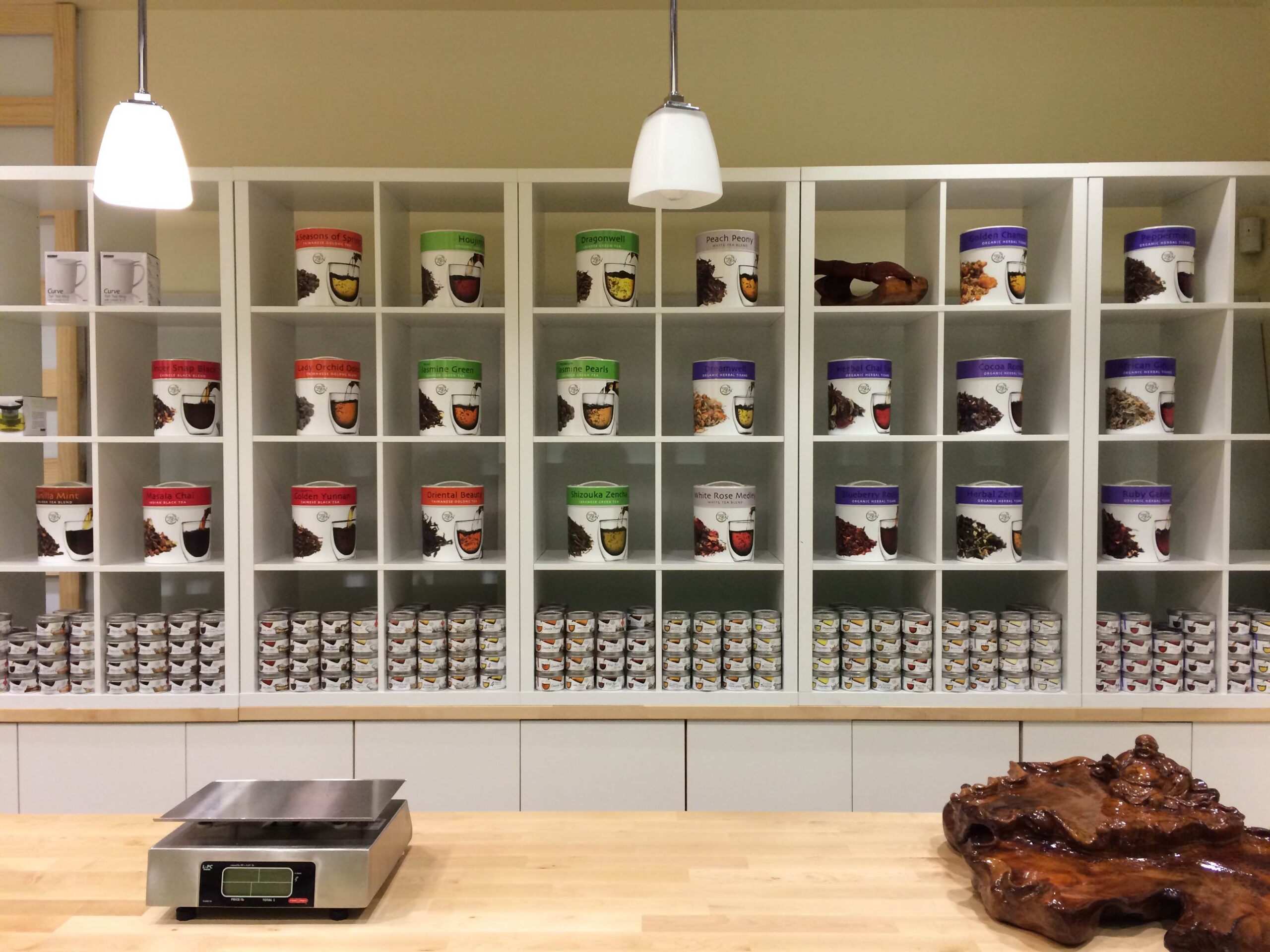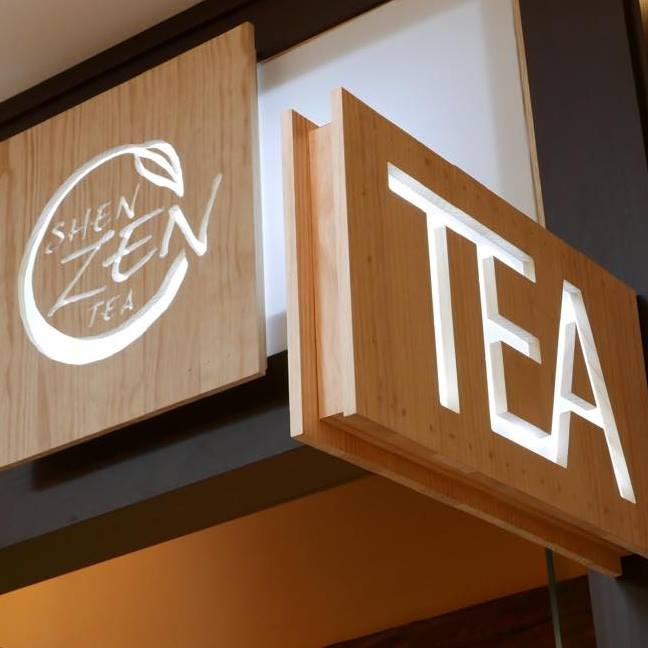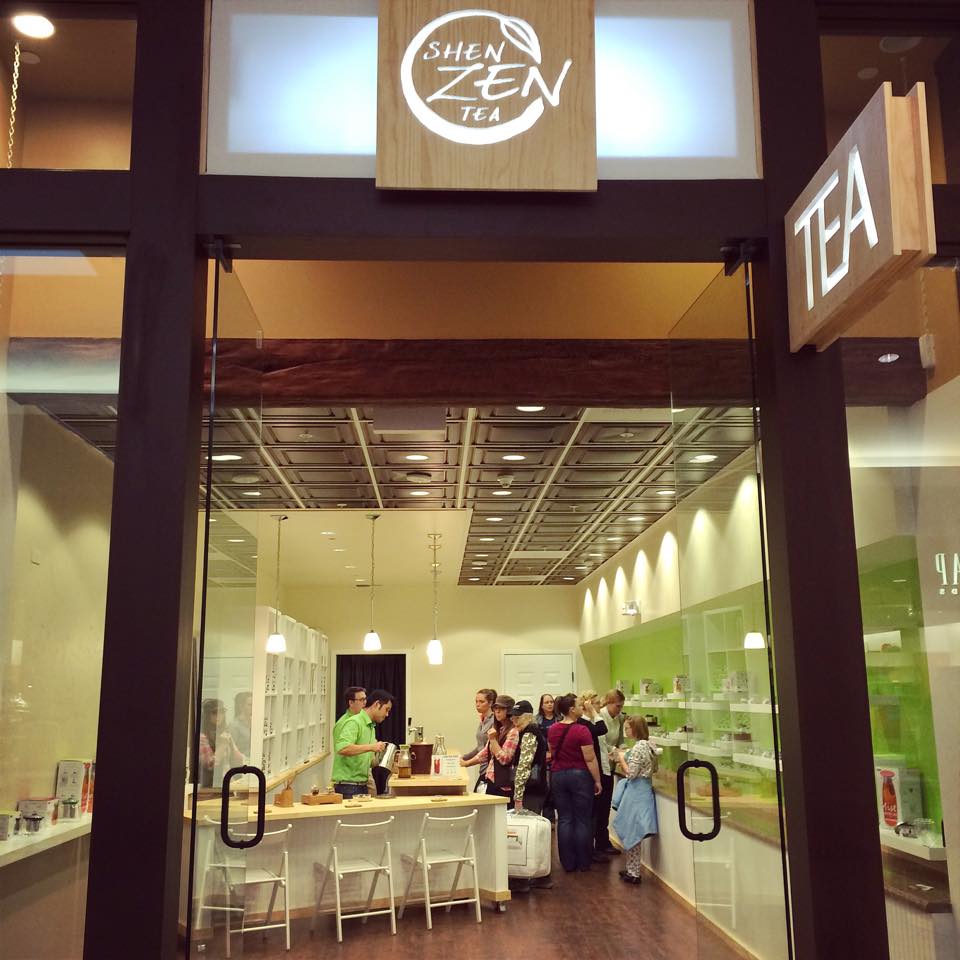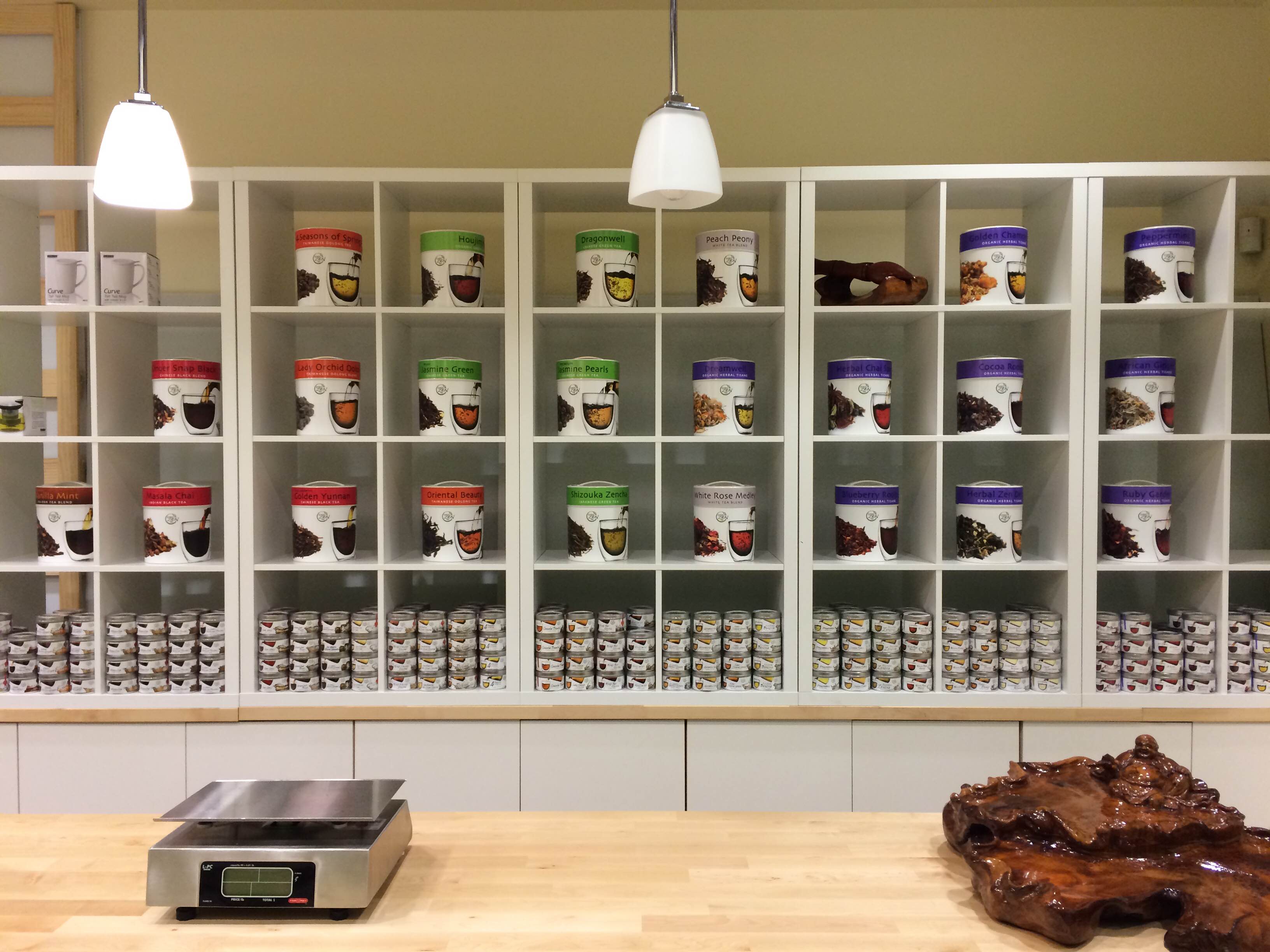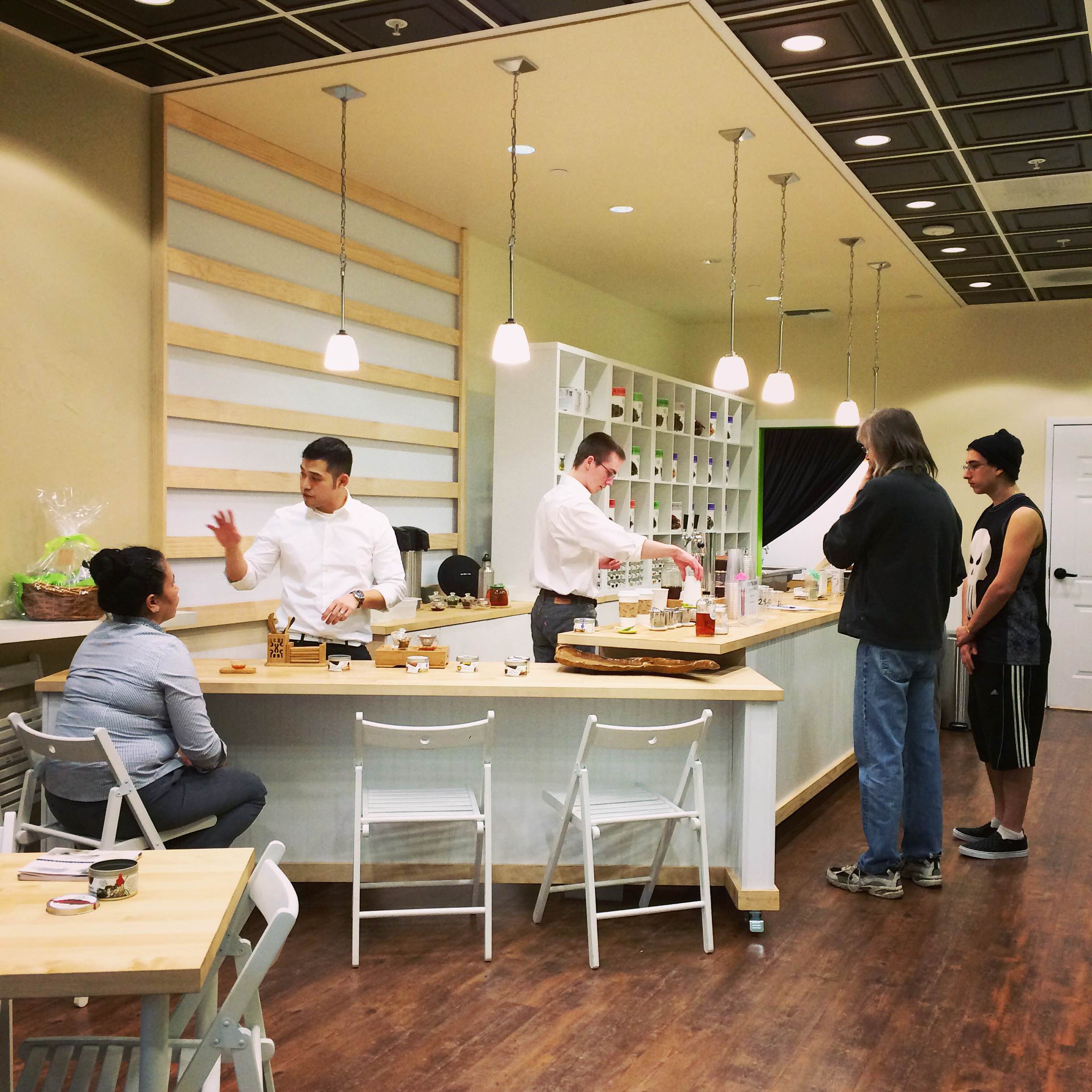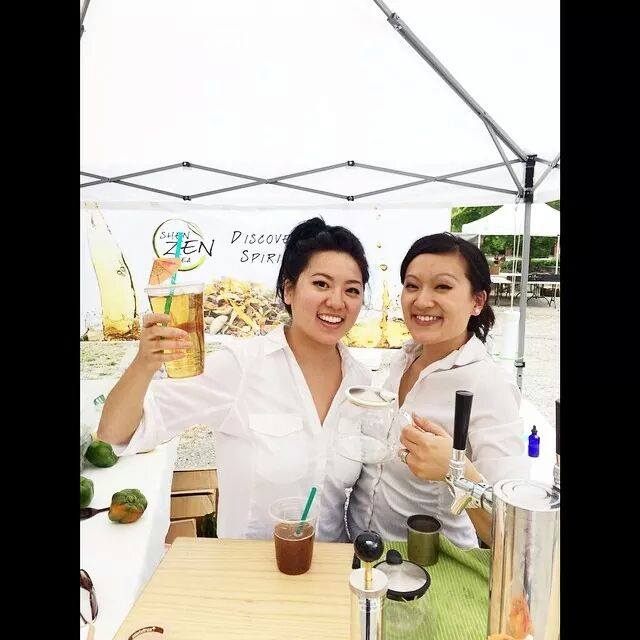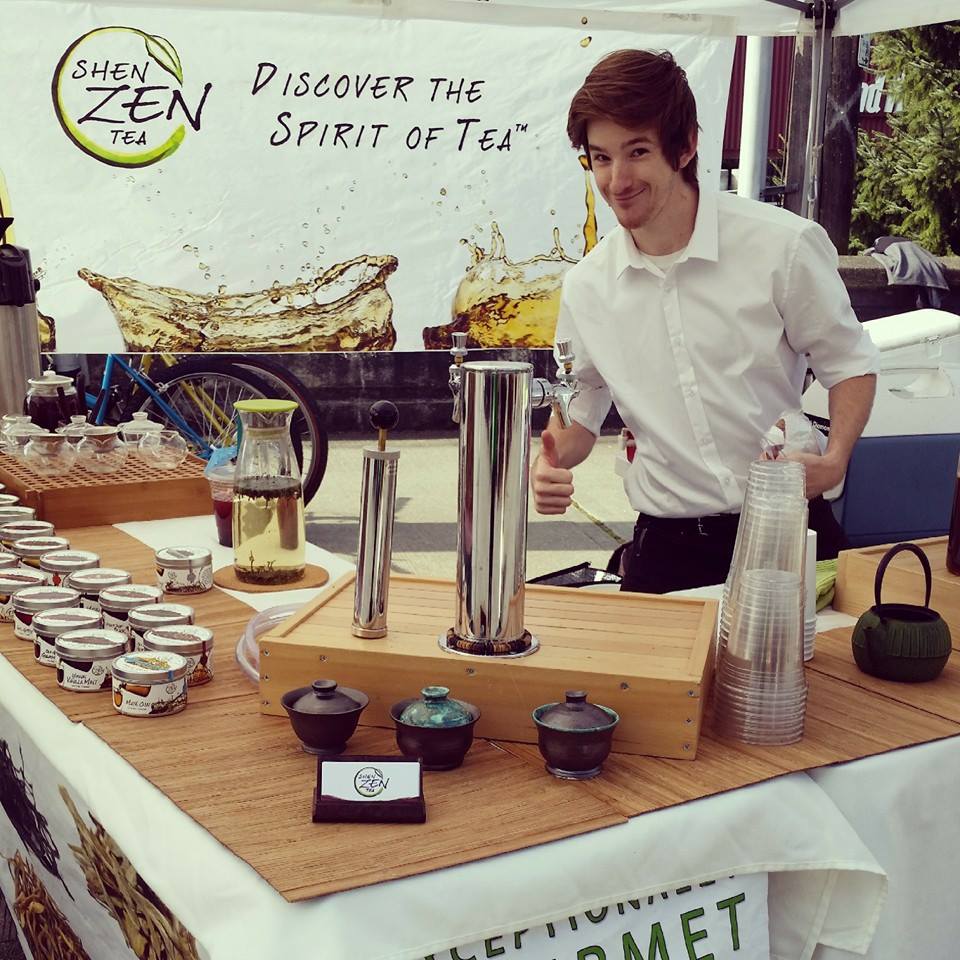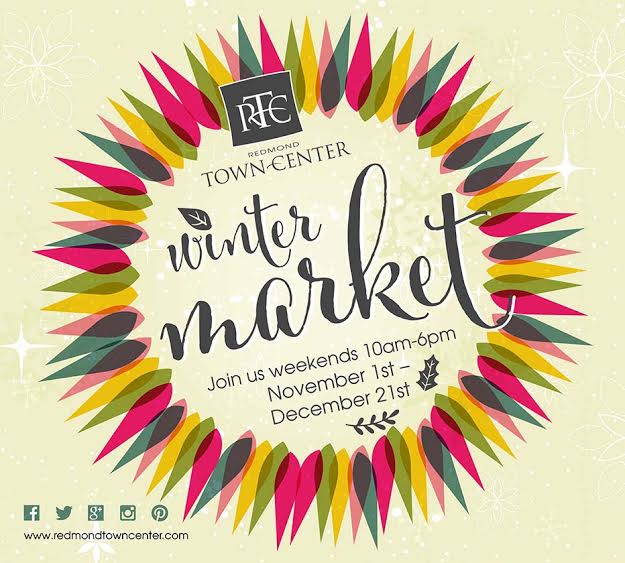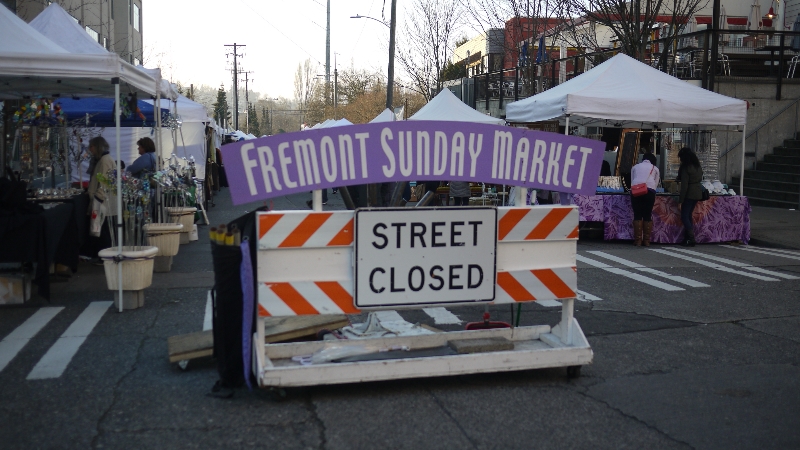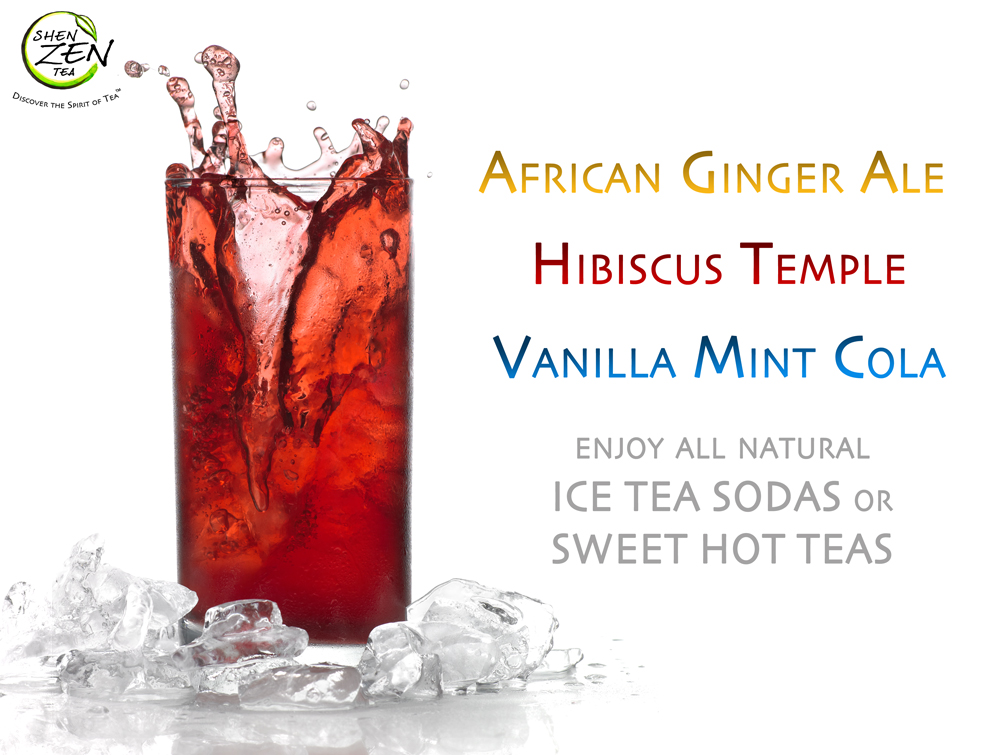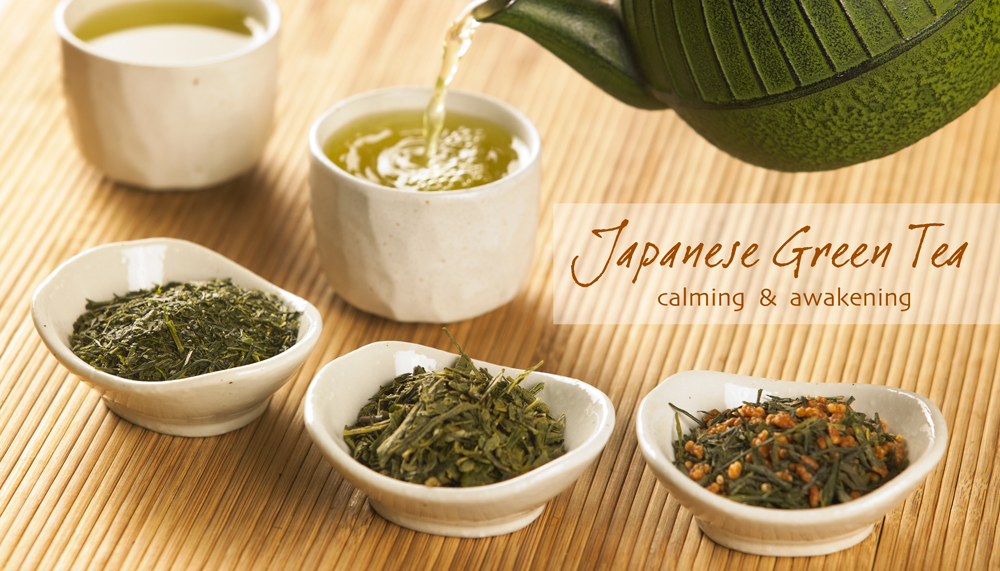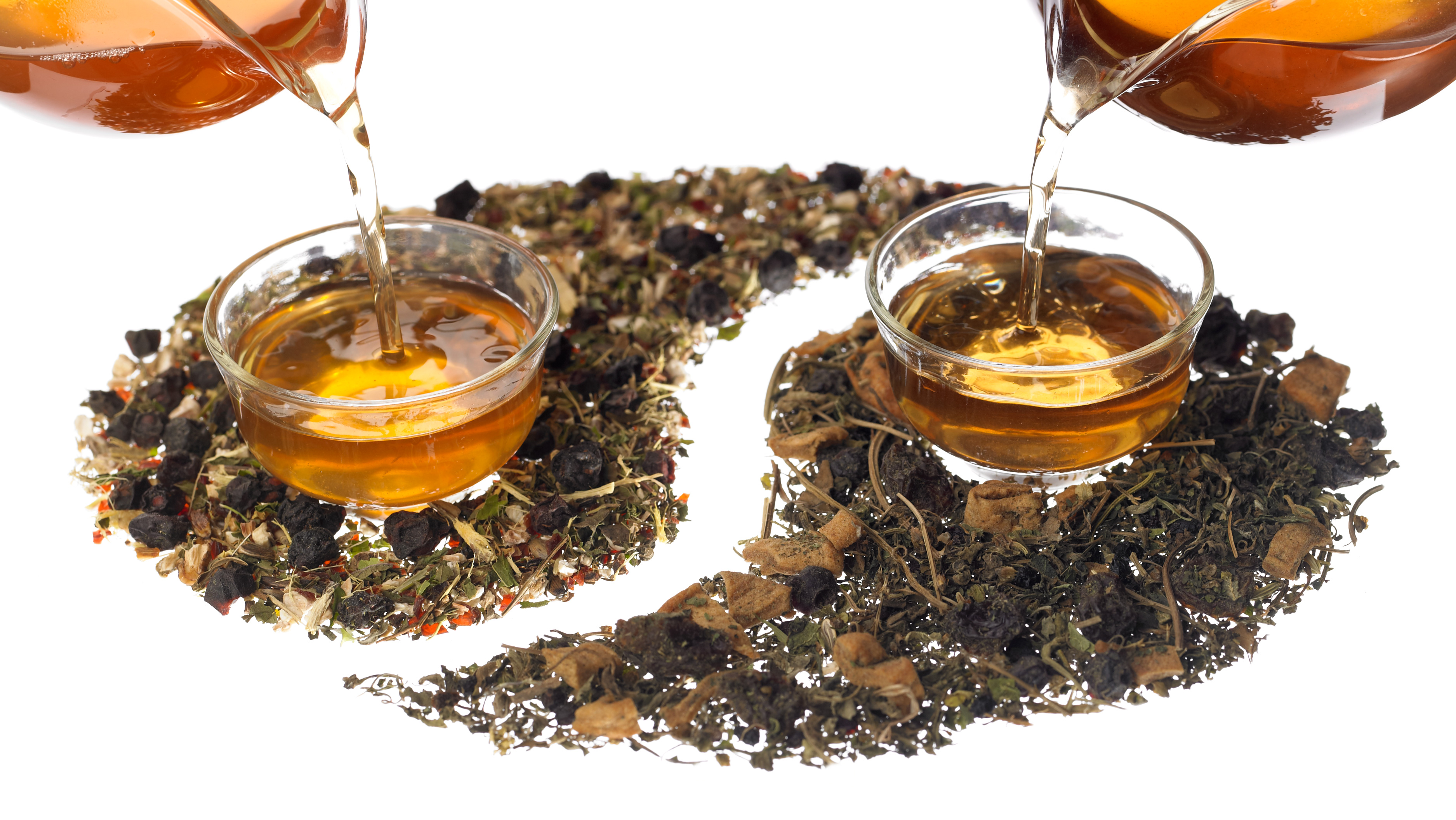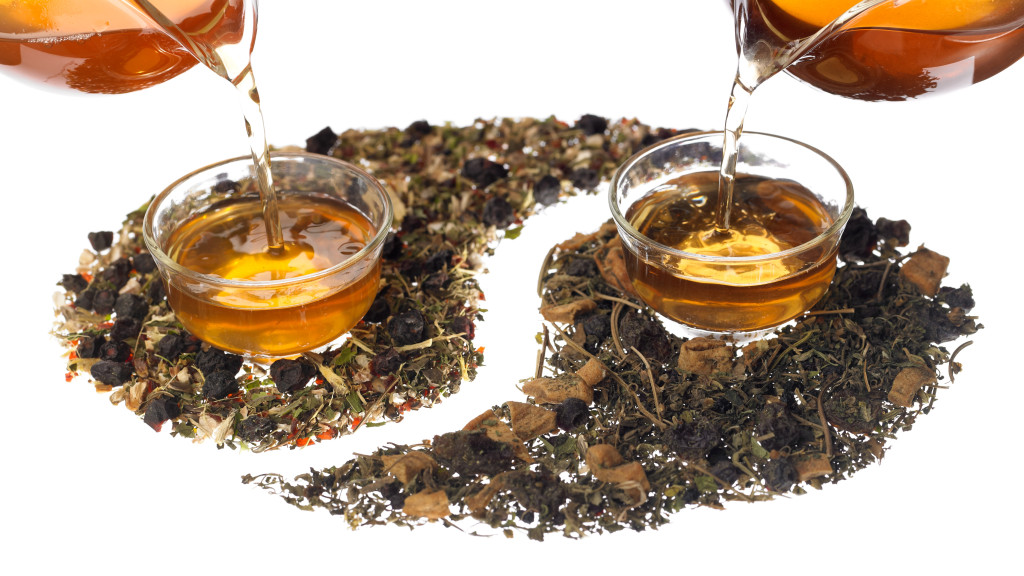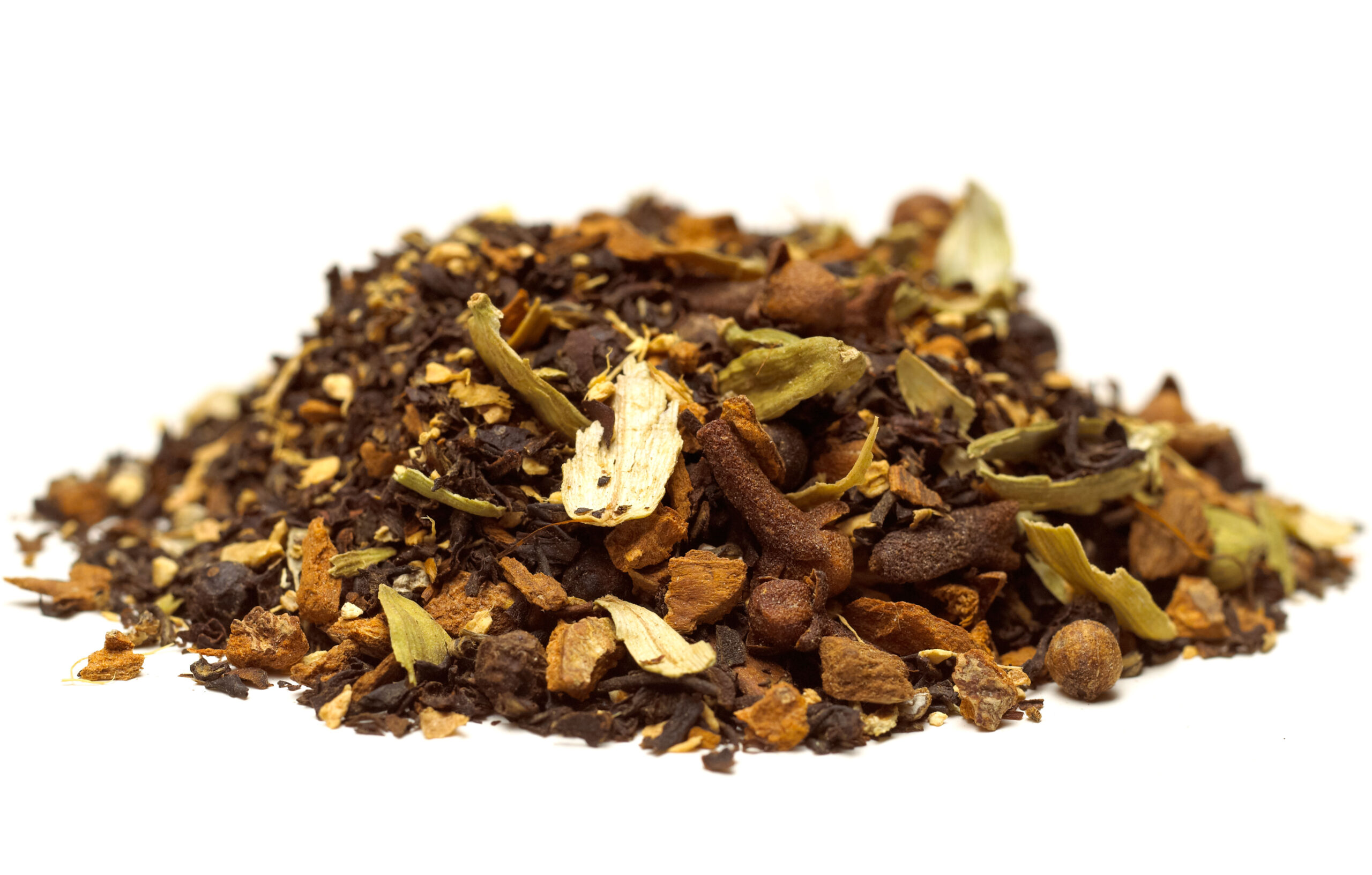
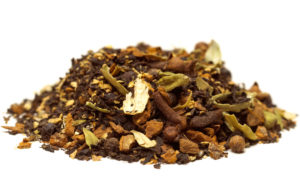 Did you know the word chai literally translates to the English word tea? Traditional “chai” spices originate from India, in a blend known as Masala.
Did you know the word chai literally translates to the English word tea? Traditional “chai” spices originate from India, in a blend known as Masala.
The warm, spicy sweetness of these freshly ground herbs and black tea boiling on the stove – aroma rising from the pot – is an ideal atmosphere for a cold winter morning! It’s not hard to imagine why variations of this blend are plastered over almost every tea and coffee shop window as soon as the autumn solstice arrives.
History
Masala chai was invented in the early 20th century by tea vendors across India, after the British pushed a campaign for citizens to purchase tea grown in Assam. In India at that time, tea was often used as an herbal medicine rather than a recreational drink.
When the British established tea plantationsin India and Ceylon, and stopped acquiring the majority of it from China, they encouraged the people of India to participate in consumption. The Indian Tea Association, owned by the British, insisted that factory and mine workers receive a tea break during the day.
Originally, this beverage was served in the British style, with low doses of milk and sugar. Indian tea vendors, called Chai Wallahs (male) or Chai Wallis (female) began to add a variety of spices and more water and milk to reduce the use of the expensive black tea.
In modern day India chai wallahs can be found on every street corner at any given time to provide, “…the piping hot, milky brew that fuels the country.”
Ingredients
Masala chai is really a category of tea, rather than a specific type. There is no determined recipe, just a combination of ingredients including milk, sugar, ginger and cardamom. The ginger and cardamom base is referred to as karha. Strong black tea is traditionally added to Karha to make a masala chai, but isn’t necessary.
If made with black tea, it contains about ⅓ of the caffeine present in coffee. Assam is often used because it’s strong enough to hold its own against the milk, sugar, and spices.
In India, a particular type of Assam called mamri is often used, because it is inexpensive and easily accessible. (Mamri is processed into granules instead of whole leaves, which are still larger pieces than the “tea dust” that’s often used in tea bags.)
Another style, kashmiri chai, is made with gunpowder tea, also known as pearl tea, which is usually some sort of rolled green or oolong.
Health
Other spices frequently used in masala chai blends are cinnamon, star anise, peppercorn, nutmeg or cloves. Warming herbs are popular additions, which act as stimulants and have drying properties.
This can help pacify feelings of lethargy and relieve cold hands and feet, both of which are symptoms of a body that is too moist, according to herbal medicine traditions. Such herbs can also be helpful for those who have trouble digesting. Perhaps a more timely and desired benefit to drinking this tea during the winter holidays when feasts are upon us!
Licorice root and rose can also be incorporated for a sweeter, calming variant. These herbs are naturally cooling and moistening for the body, making a nice balance between spices. Our Herbal Chai Spice blend, for example, includes juniper berry and licorice root.
Culture and Preparation
Water buffalo milk is traditionally used to make chai in India, but low-fat cow milk is common outside of the country. Sweetened condensed milk is also used to double as a sweetener and dairy additive.
Generally masala chai is made of 2 parts water and 1 part milk, combined with the spice blend and brought to a boil, then poured through a strainer into cups. The preparation method may vary depending on local customs. It’s not about how you get there, it’s about the final product!
DIY
Craving masala chai now? Here’s a recipe, using our own Masala Chai blend. We’ve already gathered most of the ingredients for you!
Recipe makes about 3 cups of tea.
Ingredients needed:
2 cups of water
1 cup of milk, or milk substitute
2 Tablespoons of cane sugar, or sugar substitute (optional, can sweeten to desired taste)
3 Tablespoons of Shen Zen Tea’s Masala Chai tea blend (can also use Pumpkin Spice Chai, Mate Chai, or Herbal Chai Spice!)
Directions:
- Combine ingredients in a pot on the stove.
- Heat to a rolling boil.
- Once boiling, turn down heat and allow to simmer for approximately 6 minutes uncovered for mild/average strength. 10 minutes for strong.
- Strain through metal mesh strainer into desired mug(s) and enjoy!
Shen Zen Tea masala chai variations:
Masala Chai: Black tea, cinnamon, cardamom, ginger, black pepper, and cloves.
Pumpkin Spice Chai: Cinnamon, cardamom, oolong tea, vanilla beans, ginger, black tea, nutmeg, allspice, cloves, and marigold.
Mate Chai: Yerba mate, cardamom, cinnamon, ginger, cloves, coriander, chicory root, and black pepper.
Herbal Chai Spice: Cinnamon, star anise, cardamom, rooibos, ginger, allspice, black pepper, juniper berry, and licorice root.
Written by Bryanna Putman
Edited by Allegra Radcliffe
Sources
1.) Eplett, Layla. “Tea Tuesday: Meet The Chai Wallahs Of India.” NPR, NPR, 14 June 2016, www.npr.org/sections/thesalt/2016/06/14/481878368/tea-tuesday-meet-the-chai-wallahs-of-india.
2.) Rawat, Radhika. “Karha: the Heart of Chai.” Hanuman Chai, 19 Nov. 2011, hanumanchai.blogspot.ca/2011/11/karha-heart-of-chai.html.
3.) Tilgner, Sharol. Herbal Medicine: from the Heart of the Earth. Wise Acres, 2009.
